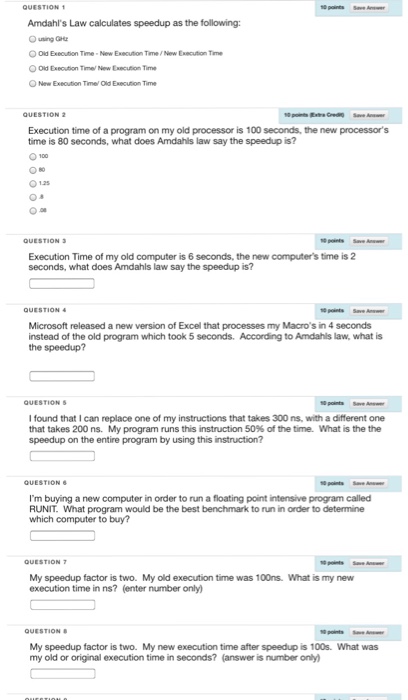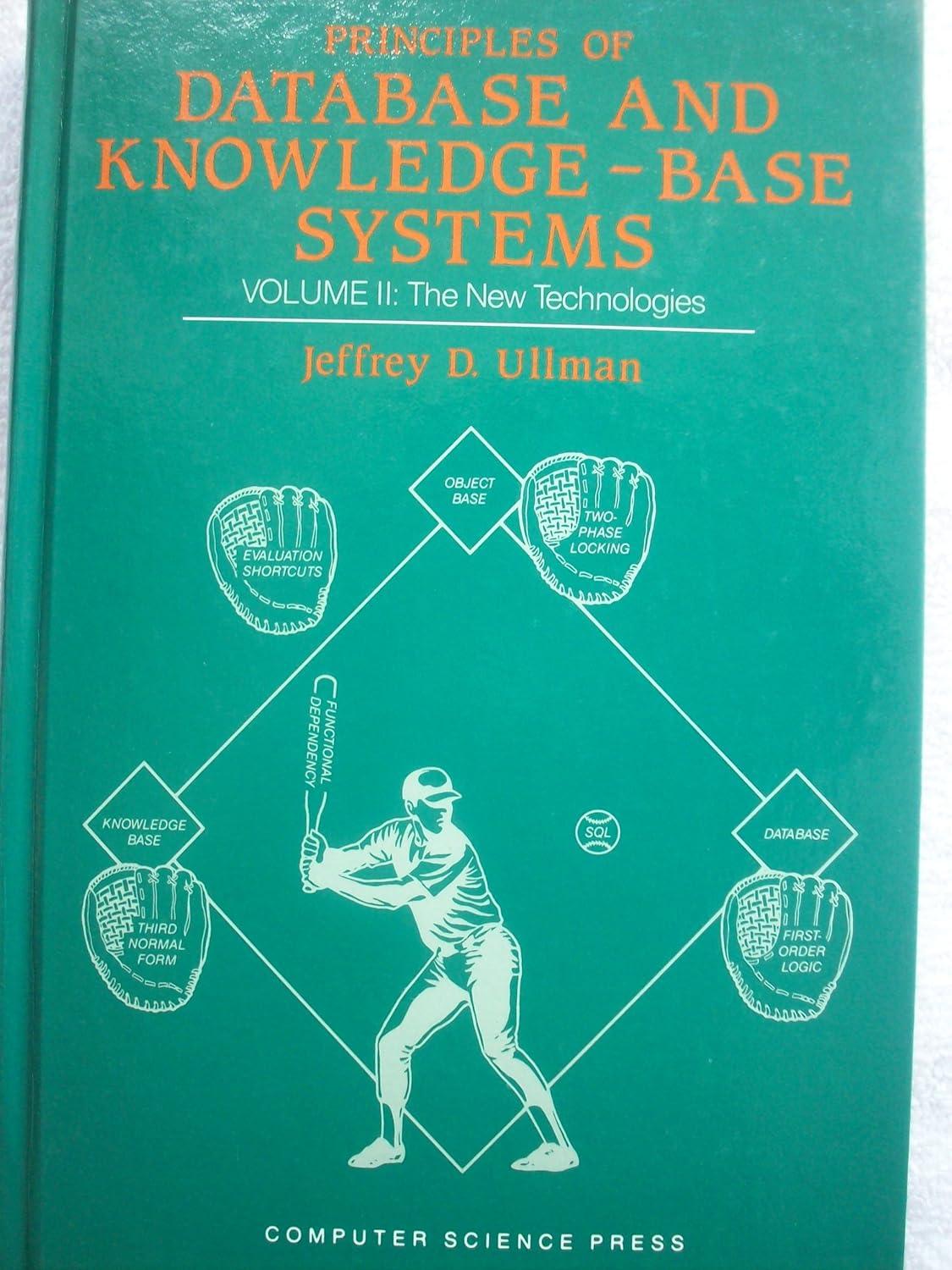Answered step by step
Verified Expert Solution
Question
1 Approved Answer
Amdahl's Law calculates speedup as the following: using GHz Old Execution Time - New Execution Time/New Execution Time Old Execution Time/New Execution Time New Execution

Step by Step Solution
There are 3 Steps involved in it
Step: 1

Get Instant Access to Expert-Tailored Solutions
See step-by-step solutions with expert insights and AI powered tools for academic success
Step: 2

Step: 3

Ace Your Homework with AI
Get the answers you need in no time with our AI-driven, step-by-step assistance
Get Started


